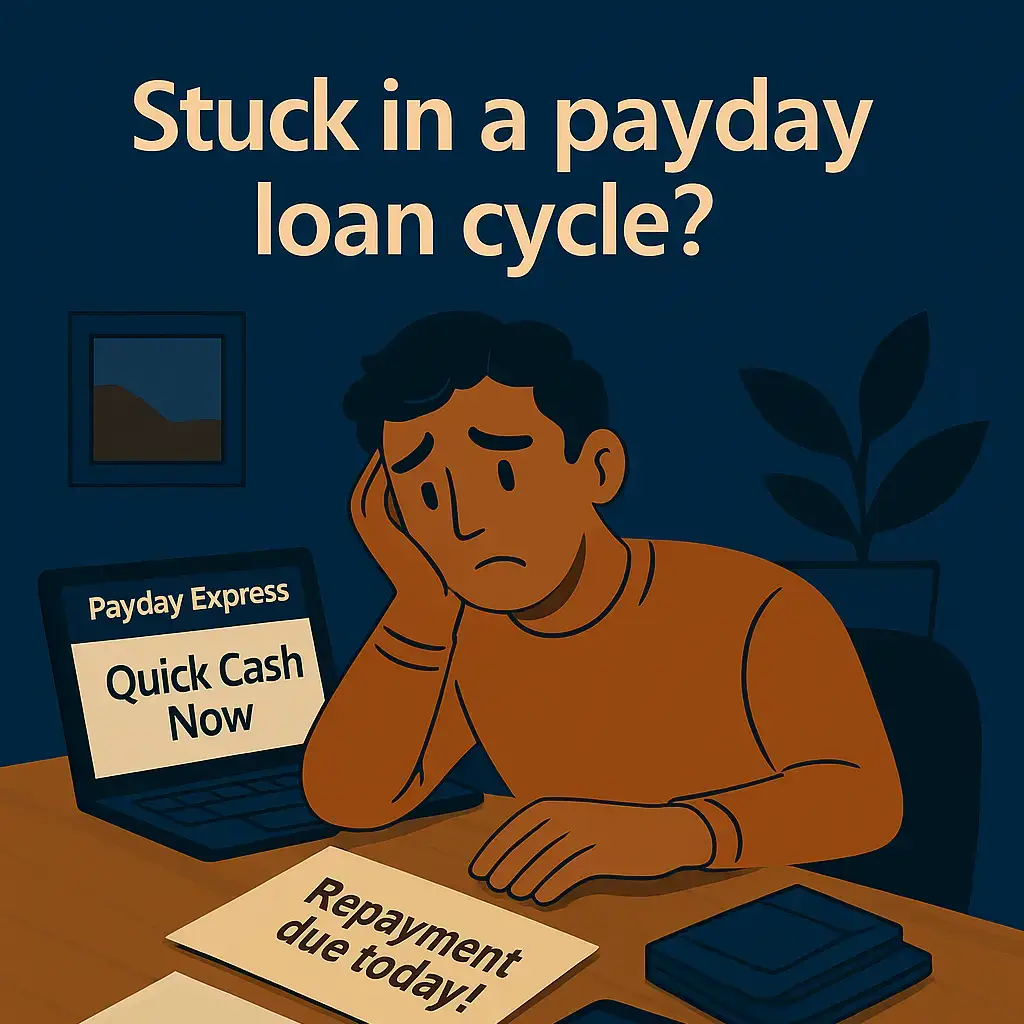Guide to Payday Loan Debt in the United States
What Is Payday Loan Debt?
Payday loan debt results from short-term, high-interest loans typically used to cover urgent expenses until the next paycheck. These loans are usually due within two weeks to a month and often carry annual percentage rates (APRs) exceeding 300%.
While easy to access, payday loans can quickly spiral into unmanageable debt due to fees, rollovers, and aggressive collection tactics.
Why Is Payday Loan Debt So Problematic?
- Extremely High Interest Rates: Many loans carry APRs of 300%–600%.
- Short Repayment Windows: Typically due in full on your next payday.
- Cycle of Debt: Borrowers often renew or “roll over” the loan, incurring new fees.
- Aggressive Collection: Payday lenders may withdraw funds directly from your bank account or use third-party collectors.
- Limited Regulation: Some states restrict or ban payday lending; others allow it with minimal oversight.
The Payday Loan Collection Process
- Missed Payment: Leads to additional fees and attempts to withdraw from your bank account.
- Loan Rollover or Renewal: The Lender may offer a new loan to cover the old one at an additional cost. Rollovers or renewals are always possible, but many states limit or prohibit these practices. It should be clarified that rollover availability depends heavily on state law.
- Third-Party Collection: Defaulted loans are often sold to collection agencies.
- Bank Account Overdraft: Repeated withdrawal attempts may cause overdraft fees.
- Lawsuits and Wage Garnishment: In some states, lenders or collectors may sue to collect the debt
Options for Resolving Payday Loan Debt
- Request Extended Payment Plans: Many states require lenders to offer this at no extra cost.
- Negotiate a Settlement: You may be able to settle for less once the loan is in collections.
- Revoke Bank Authorization: You can stop automatic withdrawals by revoking ACH authorization in writing.
- Credit Counseling: Nonprofits may help consolidate payday loans and negotiate better terms.
- State Attorney General: Can intervene if a lender operates illegally in your state.
- Bankruptcy: In severe cases, payday loans may be dischargeable under Chapter 7.
Consumer Protections for Payday Loan Borrowers
- CFPB Rules: The Consumer Financial Protection Bureau (CFPB) enforces rules against unfair practices.
- FDCPA Protections: If sent to a third-party collector, you’re protected from harassment or false threats.
- State Laws: Some states ban payday lending outright or cap APRs.
- Military Lending Act (MLA): Caps payday loan APRs at 36% for active-duty servicemembers.
State-Level Regulation of Payday Loans
- Banned in 16+ States: Including New York, Massachusetts, and New Jersey.
- APR Caps in Others: Many states limit APRs to 36% or less.
- Unlimited Lending in Some States: Including Texas, Nevada, Utah, and Mississippi.
Check with your state regulator or attorney general to understand your rights.
States Where Debt Collectors Do NOT Require a License (as of 2024)
Georgia, Kansas, Kentucky, Michigan, Missouri, Montana, New Hampshire, Oklahoma, Pennsylvania, South Carolina, South Dakota, Tennessee, Wyoming
Licensing may still apply to payday lenders or loan servicers in these states. Always verify.
How to Verify a Payday Lender or Collector
- Ask for a written breakdown of what you owe
- Check if the lender is licensed to operate in your state
- Confirm any collector is licensed, if applicable
- Contact your state consumer protection office for help
Key Takeaways
- Payday loans are high-risk, high-cost debts with fast repayment cycles
- Many borrowers fall into a debt trap due to fees and rollovers
- State laws vary widely; some ban payday loans altogether
- You have federal and state protections—use them to dispute abusive practices and stop unauthorized bank withdrawals
Sources
- https://www.consumerfinance.gov/ask-cfpb/what-is-a-payday-loan-en-1567/
- https://www.consumer.ftc.gov/articles/payday-loans
- https://www.nclc.org/issues/payday-loans.html
- https://www.ncsl.org/financial-services/payday-lending-state-statutes
- https://www.consumerfinance.gov/rules-policy/final-rules/payday-lending-rule/
Schedule Free Consultation
Take the first step toward a debt-free future with guidance you can trust.

